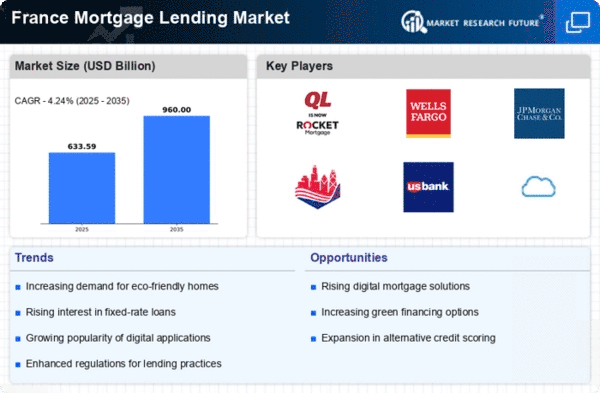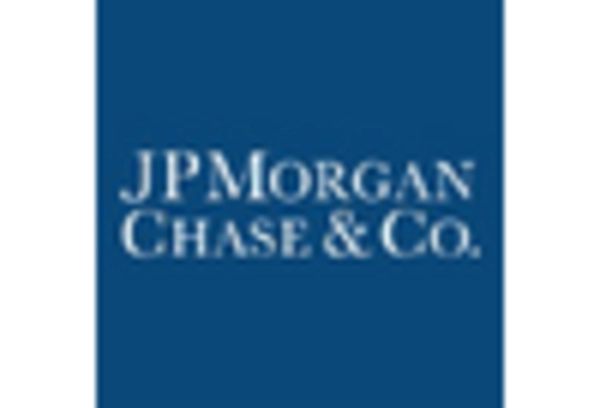Rising Property Prices
The mortgage lending market in France is significantly influenced by the ongoing rise in property prices. In 2025, average property values have increased by approximately 7% compared to the previous year, creating a challenging environment for potential buyers. This escalation in prices necessitates larger mortgage amounts, which can impact affordability for many consumers. As a result, lenders may need to adjust their lending criteria to accommodate the changing landscape. Furthermore, the rising property prices could lead to an increase in demand for higher loan-to-value (LTV) ratio mortgages, as buyers seek to finance a larger portion of their home purchases. Consequently, the rising property prices are a critical driver shaping the dynamics of the mortgage lending market in France.
Increasing Housing Demand
The mortgage lending market in France is currently experiencing a surge in housing demand, driven by a combination of demographic shifts and urbanization trends. As more individuals and families seek homeownership, the need for mortgage financing becomes increasingly pronounced. In 2025, the number of housing transactions is projected to rise by approximately 5%, indicating a robust appetite for property acquisition. This heightened demand is likely to stimulate competition among lenders, potentially leading to more favorable mortgage terms for consumers. Furthermore, the growing trend of remote work may encourage individuals to seek homes in suburban areas, further diversifying the types of mortgage products offered in the market. Overall, the increasing housing demand is a pivotal driver influencing the dynamics of the mortgage lending market in France.
Low Interest Rate Environment
The prevailing low interest rate environment in France plays a crucial role in shaping the mortgage lending market. As of November 2025, average mortgage rates hover around 1.5%, making borrowing more accessible for potential homeowners. This favorable interest rate scenario encourages individuals to take on mortgages, thereby boosting lending volumes. The French government has also implemented measures to maintain low rates, which further supports the housing market. Consequently, the mortgage lending market is likely to witness an influx of new borrowers, as lower rates reduce monthly payment burdens. This trend may also lead to an increase in refinancing activities, as existing homeowners seek to capitalize on the advantageous rates. Thus, the low interest rate environment remains a significant driver of growth within the mortgage lending market.
Government Incentives for Homebuyers
In an effort to stimulate the housing market, the French government has introduced various incentives aimed at first-time homebuyers. These initiatives, which include tax breaks and subsidized loan programs, are designed to make homeownership more attainable. As of November 2025, approximately 20% of new mortgages are being issued under these government-backed schemes, reflecting their impact on the mortgage lending market. Such incentives not only encourage borrowing but also contribute to a more vibrant housing market by increasing the number of transactions. Additionally, these programs may lead to a diversification of mortgage products, as lenders adapt to meet the needs of a broader range of consumers. Overall, government incentives for homebuyers are a vital driver influencing the mortgage lending market in France.
Technological Advancements in Lending
Technological advancements are reshaping the mortgage lending market in France, enhancing efficiency and accessibility for both lenders and borrowers. The integration of digital platforms and automated processes is streamlining the application and approval stages, reducing the time required to secure a mortgage. As of November 2025, approximately 30% of mortgage applications are processed online, indicating a shift towards digitalization in the industry. This trend not only improves customer experience but also allows lenders to reduce operational costs. Moreover, the use of data analytics and artificial intelligence is enabling more accurate risk assessments, which could lead to better lending decisions. Thus, technological advancements are a significant driver influencing the evolution of the mortgage lending market.
















